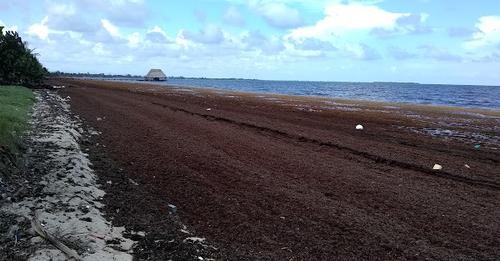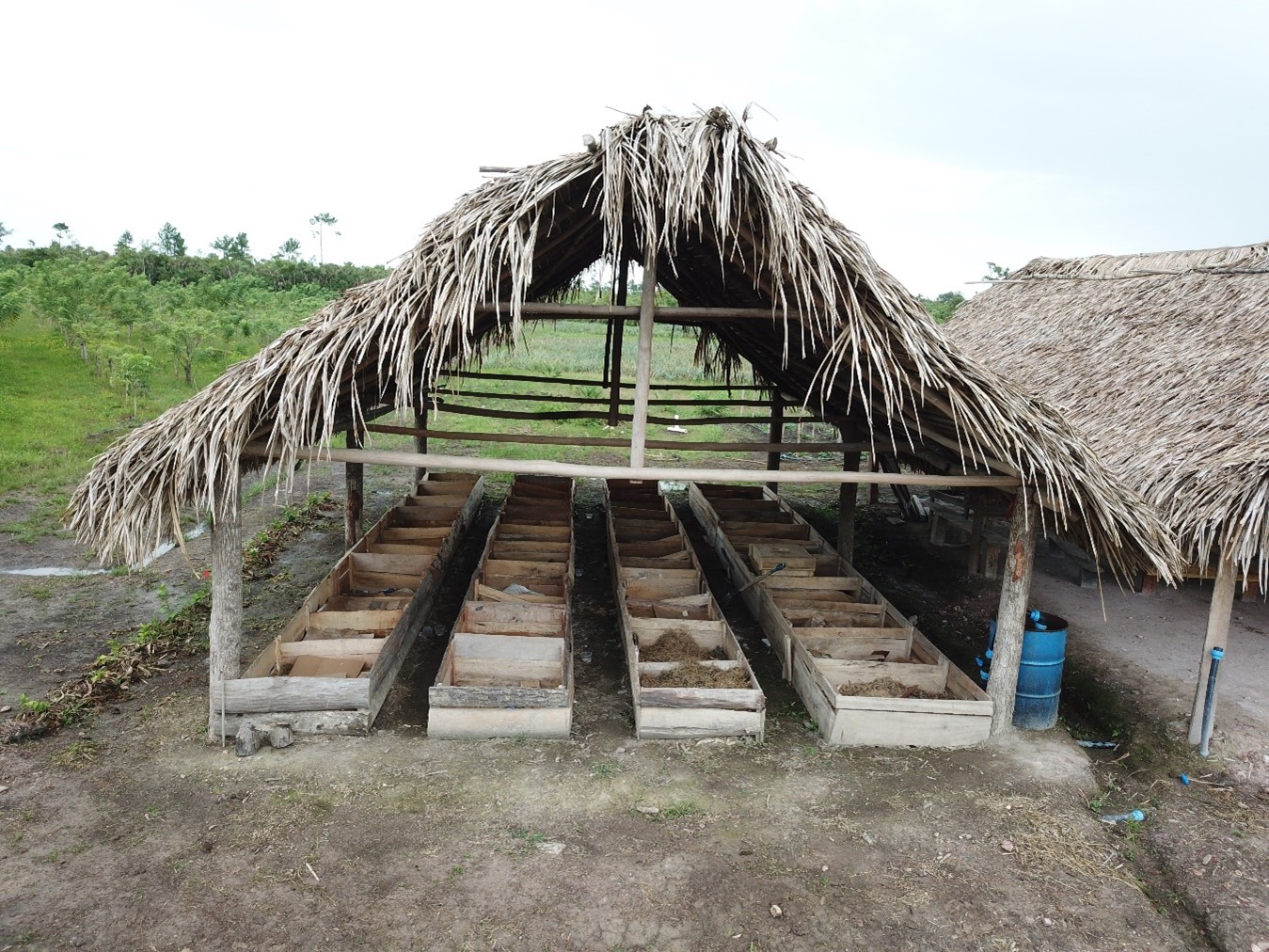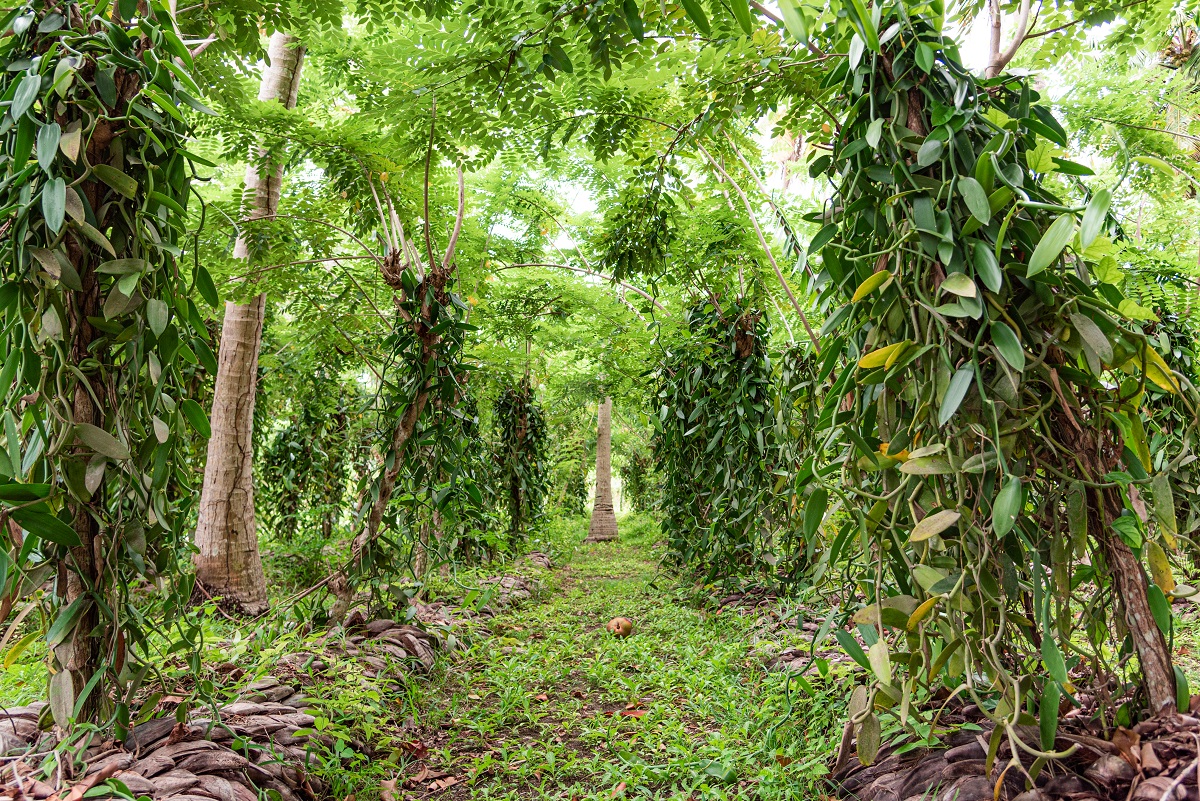- Belize is considered vulnerable to climate change.
- Awareness can be raised by making small changes to farming practices and building up.
- Positive stories on moves to mitigate climate change need to be told.
I asked our team in the office last week if they knew about climate change. Our four graduates said yes, they learnt about it at university, but since then they haven’t thought about it at all. So, you can imagine what our field team think about it.
Our vanilla and cocoa farm is four miles (6.4 km) from the Caribbean Sea, at 80-foot (24.4 metres) altitude and very, very flat. There’s always been hurricanes, fires, and floods here in Belize, so the direct impact of climate change has yet to be felt by most Belizeans.
Probably the most significant right now is the sargassum which covers most of the beaches for months on end. As it breaks down it produces hydrogen sulphide or rotten egg gas that destroys electronics like televisions and computers with too much exposure. Taskforces have been set up all over the Caribbean to find ways to either stop it being produced, or stop it from reaching the shore.

Sargassum in front of my house in Placencia, Belize 2018. No swimming today.
Panel after panel of UN/Food and Agriculture Organisation/World Bank reports show Belize is vulnerable to the effects of climate change due to its very low-lying terrain, extensive coral island cayes and a lot of key infrastructure on the coastline, particularly in Belize City. Maybe it’s all relative though. Strangely enough this summer it is cooler in Belize at 16 degrees Celsius south of the equator than it is in great swathes of the US. This has extended the tourism season, in one of climate change’s unforeseen consequences.
It may seem that we are doing nothing at our farm in Belize to mitigate climate change if our employees are not in the know. We are composting, not using tractors, reducing granular fertilizer use, measuring trash production, water, and fuel use, and training our staff in safe, responsible use of chemicals when needed.
Starting Small
But the concept of climate change is as much at the forefront of your mind as the Eurovision results when you are a farm worker in Belize, or anywhere else in the developing world. It’s hard to worry about that when your motorbike has broken down and the price of beans and rice has gone up, along with electricity and bus fares and everything else.
So, what do we do? Start small and build up. Explain why we need to pick up trash and stop it getting into the waterways. Show our workers how we control erosion with cover crops. I had to show a young guy how to start a fire to heat up some water using twigs, not a Chlorox bottle (“that’s the way we’ve always done it”). Ridesharing. Recycling as much as we can. Use local building materials like our worm farm buildings below instead of cinderblock and imported PVC. Show workers how to use weather apps. Giving them bokashi buckets to compost their food waste at home and reduce pest infestation. Training farmers in vanilla production with a local NGO. Show real solutions, however small they may seem. Better solutions will come along in time, but we’re not waiting.


Its cooler here than in our air conditioned office – worm farm, Corridgeree Belize.
While it may appear like we are going too slow, we know putting the fear of climate change into farm workers will only alienate them. It’s the developed world that caused most of it after all. As we can see in the US, a full frontal assault on climate change deniers achieves nothing. On the farm we believe that by having an expanding model and integrating it into their working lives will sow the seeds of change. If you have any other suggestions on how to tell the climate change story in this context, I’m all ears.
Getting Citizens on Board
I see on LinkedIn a bunch of grant opportunities and people offering prizes for moon-shot solutions to climate change at scale. Everyone is winning prizes too. I find this a bit odd, as we are at the start of the challenge, not the end. There is a chasm between these initiatives and persuading ordinary folk to become invested. Like me, a lot of people don’t know what to do and are anxious.
While there is a lot of science to back up climate change, maybe it’s time for the storytellers to step in. I’ve read Kim Stanley Robinson’s The Ministry of the Future, and Neal Stephenson’s Termination Shock in the last year and while they are great reads, descriptions of the challenges ahead are pretty bleak.
I went through Hurricane Sandy in New York City in October 2012, and was evacuated from a fire in Colorado on New Year’s Eve in last year that destroyed about 1,000 homes when there should have been two feet of snow on the ground. Soon we will all have war stories to tell.
Changing the Narrative
But we need to be telling better stories than that. The one I look to here is Belize’s Blue Bonds for Ocean Conservation that last year restructured over USD 500m in commercial debt and which will generate around USD 180m for marine conservation to 2040. I can see the impact it is having already in tourism and development employment here on the ground. It’s a good story, but its dry and complicated with lots of parties involved. Lots of meetings and PowerPoint slides and consultancies. It won’t make a good movie, but the pictures will be great.
I read a lot of good climate change writing these days on Substack. Start with The Regeneration Weekly, then try MCJ (My Climate Journey) Climate Voices, Survivaltech.club (not preppers I promise), The Snap Forward, and The Crucial Years from Bill McKibben.
Go see projects in your neighbourhood. Get used to it being awkward and not having all the answers. This stuff is messy. Don’t give up if it doesn’t work the first time. I know from my corporate years that failure is to be avoided at all costs, but that mindset has to change. As an entrepreneur and farmer, that’s just called Monday.

Other Insights that may be of interest
Investors, Regulators Drive Carbon Labelling Agenda
Agroforestry and the Art of Cocoa Plantation Maintenance
Is the US Running Out of Honey?
Interactive Data Reports that may be of interest …
Consecana Panel
